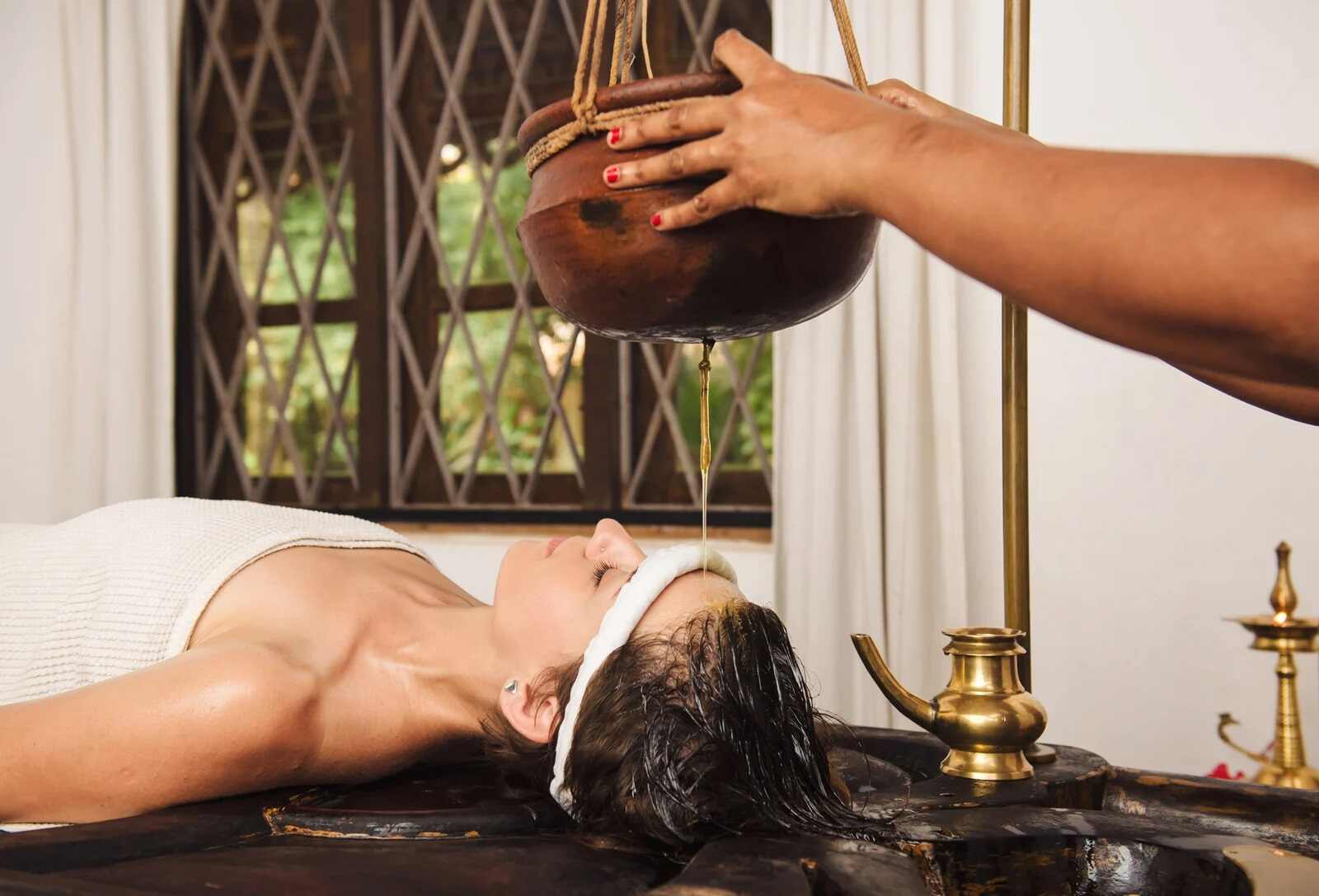Ayurvedic Treatment For Diabetes
Niroga Ayurveda Healing ( Ayurveda Chikitsa / Treatments )
Ayurveda Treatments
Effective Ayurvedic Therapies for Diabetes Management



Ayurvedic Approach to Diabetes
the practice of Ayurveda says that diabetes is a metabolic disease that throws off the balance of the three doshas, or energies, which are Vata, Pitta, and Kapha. It is more likely that diabetes is caused by an unbalance in the Kapha dosha, which is made up of earth and water. Because of this imbalance, the body gets weighty and sluggish every times. But all three doshas can be used to guess when the disease will start and how it will spread.
Madhumeha is the term used in Ayurvedic medicine to mean the presence of sugar in the urine and blood that exceeds the limit, causing symptoms such as frequent urination, increased thirst, fatigue, and weight loss. The imbalance of doshas obstructs the body’s Agni (digestive power), leading to the improper digestion and assimilation of nutrients. This, in turn, results in the accumulation of pollutants (Ama) inside the body.
An Ayurvedic Way to Treat Diabetes
Ayurvedic diabetes treatment involves holistic changes, including food, lifestyle, herbal medicines, and panchakarma therapies, to restore body balance, improve digestion, eliminate toxins, and restore doshas.


1. Dietary Modifications (Ahara)
Diabetes management requires careful attention to diet. Ayurveda recommends:
Diet for Balancing Kapha: Foods that reduce Kapha to normal levels should be prioritised in your diet. This comprises the kashaya katu and thiktha flavours. Bitter gourd, fenugreek, turmeric, and neem are especially useful.
Low-Glycemic Foods: Focus on whole grains such as barley, millets, and quinoa, which have a low glycemic index and help manage blood sugar levels.
Fiber-Rich Diet: Eat plenty of vegetables, particularly leafy greens and legumes, to guarantee enough fibre intake.
Avoid processed foods: Remove any refined sugars, flours, and processed foods that may cause blood sugar spikes.
Portion Control: Eating more small meals will help keep your blood sugar from going up too much.


2. Herbal Remedy (Dravyaguna)
Ayurveda uses a variety of herbs to treat diabetes:
Bitter Gourd (Momordicacharantia): It is known for its hypoglycemic effects, which aid to reduce blood sugar levels.
Fenugreek (Trigonella foenum-graecum): seeds are useful for increasing glucose tolerance and reducing blood sugar levels.
Neem (Azadirachta indica): Neem is known for its detoxifying capabilities, which assist to purify the blood and lower blood sugar levels.
Amla (Indian Gooseberry): High in Vitamin C, it helps regulate blood sugar levels and boosts immunity.


3. Ayurvedic therapies
Certain Ayurvedic remedies may be beneficial:
Panchakarma is a detoxification method that helps to remove toxins from the body and rejuvenate the system.
Abhyanga (Oil Massage): Regular oil massages boost circulation and assist to balance the doshas.
Basti (Enema): A cleansing therapy that promotes digestive health and balances the Vata dosha.
Vamana: is a detoxification procedure that helps eliminate excess kapha dosha and reduces the complications caused by kapha dosa.
Conclusion
Diabetes can be effectively treated in Ayurveda, but more part is with the patient side as they need to follow a strict diet and lifestyle. By incorporating dietary changes, lifestyle modifications, herbal remedies, and specific therapies, it is possible to balance the doshas, improve metabolism, and maintain healthy blood sugar levels.
FAQs
Frequently Asked Questions
Q:Could we use Ayurvedic medicine to treat diabetes?
A: In Ayurveda, diabetes is mostly seen as a metabolic issue caused by the doshas, especially Kapha, not being balanced. As part of the treatment, you may have to make changes to your diet, your lifestyle, use herbal medicines, or go through detoxification.
Q: Does Ayurveda work to treat diabetes?
A:Ayurveda might not be able to cure diabetes completely, but it can help people with diabetes better handle and control their blood sugar levels. The goal of the holistic strategy is to improve health as a whole and lower the risks of diabetes complications.
Q: What changes should people with diabetes make to the food they eat?
A:The Ayurvedic way of life says that you should eat a lot of vegetables, whole grains, lean meats, and healthy fats, but not too many carbs and sugar. Cheese and prepared foods are bad for Kapha, so stay away from them.
Q: Are there certain Ayurvedic herbs that are used to treat diabetes?
A:Yes, in Ayurveda, some herbs are typically used to treat diabetes. These are some examples:
Bitter Melon (Karela), Mustard greens (Methi), Gymnema Sylvestre (form of Gurmar), Amla, or Indian Gooseberry, Turmeric (from Haldi), Neem
Q: How does Panchakarma help with taking care of diabetes?
A:In Ayurveda, panchakarma is a way to cleanse the body of toxins. It speeds up the metabolism and makes insulin work better. Therapies like Vamana (emesis), Virechana (purgation), and Basti (enema) are part of it.
Q: Can one take regular diabetes medication along with Ayurvedic treatment?
A: Yes, Ayurvedic treatment can work with regular diabetes medicine. But it is very important to talk to both an Ayurvedic practitioner and a regular doctor to make sure that combining treatments is safe and helpful.
Q: Ayurveda says that people with diabetes should make changes to their living.
A: Ayurveda suggests that taking part in daily exercise, yoga, and pranayama (breathing exercises) may boost metabolism and alleviate tension. Additionally, Ayurvedic living for diabetes points out the need for enough sleep and gaining of stress management skills..
Q: Is it safe for pregnant women to use Ayurvedic medicines for diabetes?
A:Some Ayurvedic treatments may be safe for pregnant women, but it is very important to talk to both an obstetrician and a trained Ayurvedic practitioner to ensure the safety of both the mother and the baby.
Q:How often should someone who is taking care of their diabetes see an Ayurvedic practitioner?
A: You should have regular follow-ups, usually every few weeks to months, to see how things are going and make any necessary changes to your treatments. The number of times may change depending on the person’s health state and how well they respond to treatment.
Q: Can Ayurvedic medicine keep diabetes complications from happening?
A:The goal of Ayurvedic treatment is to balance the body’s systems. This can help avoid or lessen complications related to diabetes, like neuropathy, retinopathy, and heart problems, by keeping blood sugar levels and general health at their best.
Fill out this form for booking online.
Appointment
Book An Appointment
Make sure to note down the appointment date, time, and location provided by the clinic. Set reminders on your calendar or set an alarm to ensure you are punctual and do not miss your appointment.
Customer Service
+91 84668 82266
WhatsApp Now
+91 84668 82266
Subscribe Now
SaiAyush Ayurveda

